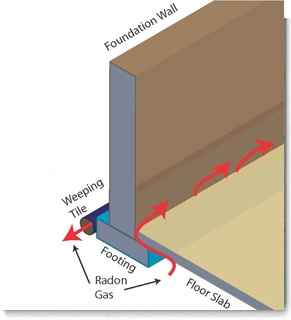Posted on March 2, 2017 by oi_admin - News

 Your home office doesn’t have to be just a laptop on a couch cushion.
Your home office doesn’t have to be just a laptop on a couch cushion.
Many people are breaking the chains of the corporate world in order to pursue careers that allow them to work from home. Here are a few tips that will help you get the most out of your home office:
- Plan Ahead - Make sure you plan out your space in advance so there’s enough room for a desk, chair and storage and don’t forget about your technology needs.
- Get Creative - If you don’t have an office, consider alternatives such as a guest room, sunroom or other unused space that’ll give you a designated uninterrupted work area.
- Lighten Up - Position lighting so there’s a nice even flow and if possible, choose a room with lots of natural light. A few plants will also add to the atmosphere.
- Sound Off - Hard surfaces tend to amplify sounds but carpets, rugs and fabric window treatments will help absorb excessive noise.
- Boundaries - Choose a private spot and don’t use it as a dumping ground for non-business related items. When you work from home, it’s critical to separate your work from home life.
Posted on March 2, 2017 by oi_admin - News

The uses for baking soda around the home are endless!
Everyone knows baking soda helps keep the inside of a fridge smelling fresh but did you know it’s also an amazing cleaner?
Here are a few other things you can use it for:
- A dry cleanser to clean tubs, tiles and toilets.
- Sprinkle on your carpet then vacuum after 15 minutes to eliminate bad smells.
- Pour a little down the sink followed by some vinegar to clear clogged drains.
Once you’ve finished cleaning your home, relaxing in the tub. Before you climb in though, add half a cup of baking soda to soften your skin!
Posted on March 2, 2017 by oi_admin - News

Making sure your heaters are working properly and operating efficiently can go a long way in keeping costs down. To help you do just that, here are 10 things you might not know about your baseboard heaters.
- Baseboard heaters are usually located under windows because it’s more efficient that way.
- Heat rises - and so do your energy costs, for every degree above 68°F.
- Cranking the thermostat doesn’t warm up the room any faster.
- Thick carpet or rugs can get in the way.
- Window coverings keep cool air out, but can block your heaters.
- If it’s dusty, it’s not working properly.
- Programmable thermostats are more precise than the manual ones.
- Pick sweet 16 (degrees) to maximize your savings. 16°C (61°F) save up to 10% on your energy bills.
- Baseboard heaters don’t circulate air well.
- They’re one of the safest heating options available since they can’t tip over.
Posted on March 1, 2017 by oi_admin - News

Radon is a colorless, odorless, tasteless, and chemically inert radioactive gas. It is formed by the natural radioactive decay of uranium in rock, soil, and water. It can be found throughout North America. Testing for it is the only way of telling how much is present.
The EPA offers examples of where radon can enter a building structure:

- Cracks in Solid Floors
- Construction Joints
- Cracks in Walls
- Gaps in Suspended Floors
- Gaps Around Service Pipes
- Cavities Inside Walls
- Water Supply

 Your home office doesn’t have to be just a laptop on a couch cushion.
Your home office doesn’t have to be just a laptop on a couch cushion.

 icon and select "Add to Home Screen".
icon and select "Add to Home Screen".
